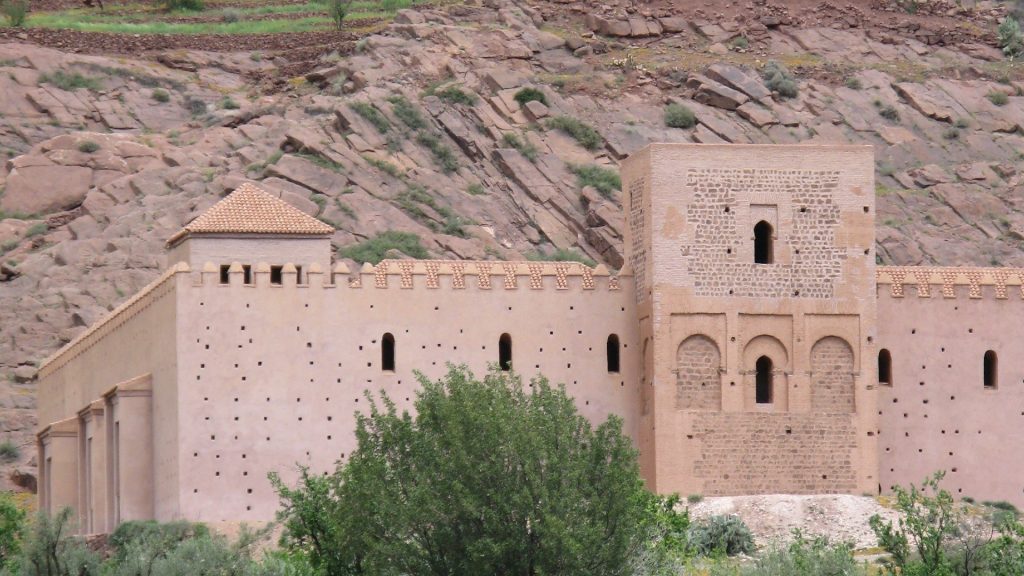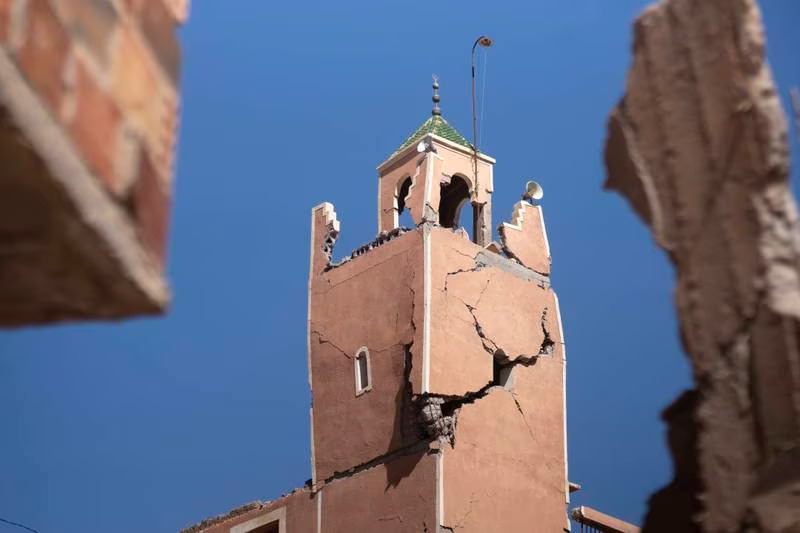Monday, September 11, 2023

The devastating 6.8-magnitude earthquake that struck Morocco on September 8, 2023, has not only claimed over 2,000 lives but has also wrought havoc on the nation’s historical treasures.
Among the hardest-hit is the Tinmel Mosque, a revered 12th-century structure in the High Atlas mountains, which was significantly damaged, signaling a loss to Morocco’s rich history. In the heart of Marrakesh, several ancient monuments and mosques dating back to the 11th century have suffered extensive damage, raising concerns about the preservation of the city’s heritage.
Tinmel Mosque
The Tinmel Mosque, located 100 kilometers southeast of Marrakesh, is a poignant example of the earthquake’s destruction. Dating to the early 12th century, this mosque was a significant historical and religious site. However, reports confirm that parts of the Tinmel Mosque have collapsed, with images showing tumbled walls, a partially collapsed tower, and heaps of debris. This loss is a tragic blow to Morocco’s architectural heritage.

Marrakesh’s Ancient Monuments
Marrakesh, a top tourist destination, boasts a rich history, and the earthquake has taken a toll on its historic monuments. Several sites dating back to the Almoravid dynasty’s founding of the city in the 11th century have suffered substantial damage. The Kharboush mosque’s minaret in Jemaa El Fnaa Square has collapsed entirely, and authorities have cordoned off the area, fearing the mosque’s total collapse. The Kutubiyya Mosque, known as “Marrakesh’s roof,” appears intact from the outside. However, reports indicate substantial cracks in its 77-meter-high minaret.
The city’s protective walls that separate historic districts from modern ones have also been damaged, further threatening Marrakesh’s historical integrity.
World Heritage Sites at Risk
Morocco is home to nine UNESCO World Heritage Sites, including the city of Marrakesh itself. The damage inflicted by the earthquake poses a significant threat to these invaluable cultural treasures. Dr. Ismail Shaouf, deputy chairman of Marrakesh’s provincial council, has highlighted the loss of heritage, calling it a “great loss for heritage, world heritage, and Marrakesh in particular.” These sites not only represent architectural beauty but also stand as witnesses to Morocco’s rich history and culture.
Call for Restoration and UNESCO Support
In the wake of this disaster, Moroccan journalist Soufiane Ben Lazaar has called upon local authorities, with support from UNESCO, to collaborate in the restoration of affected historical sites. The sentiment is widely shared among residents of Marrakesh, who consider these sites a fundamental part of their identity and culture.

Economic impact and tourism industry
Beyond the cultural and historical loss, there are concerns about the economic repercussions of the earthquake. Tourism is a vital sector of Morocco’s economy, contributing significantly to GDP. In 2019, it accounted for 7.1% of the total GDP, making it a crucial source of income for low- and middle-income families. The damage to historical sites is expected to have a substantial impact on tourism, potentially affecting the livelihoods of many.
Morocco had been aiming for a tourism recovery, with substantial investments earmarked to develop the sector. In 2019, Marrakesh was the top destination for tourists in Morocco, attracting over three million visitors. However, the earthquake’s aftermath threatens to disrupt these plans and jeopardize the livelihoods of those dependent on the tourism industry.
A Painful Loss
The earthquake in Morocco has not only claimed lives but has also devastated the nation’s historical and cultural heritage. The destruction of the Tinmel Mosque and the damage to Marrakesh’s ancient monuments are painful losses, reverberating beyond the physical structures. These sites are a testament to Morocco’s rich history and culture, and their restoration is not only a matter of architectural significance but also a preservation of the nation’s identity.
As Morocco grapples with the aftermath of this disaster, efforts to rebuild and safeguard its heritage must be a top priority, supported by both national and international initiatives.
Tags: casablanca, earthquake, history, Moroco
Saturday, April 27, 2024